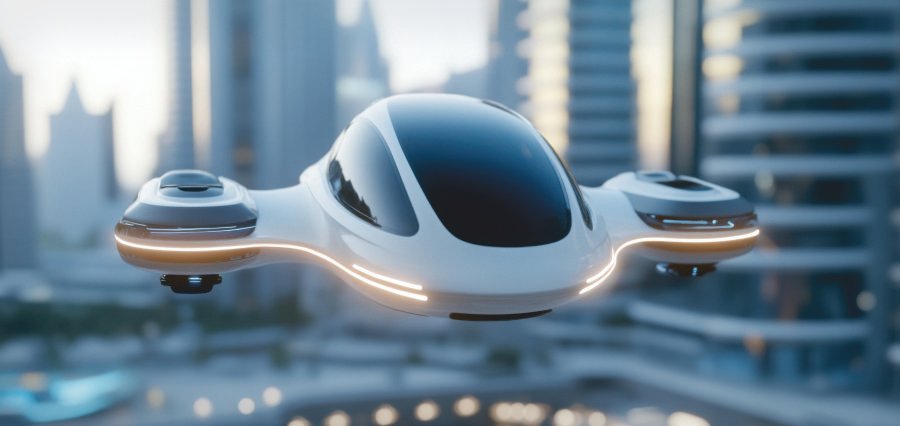Prime Highlights:
- Xpeng Motors’ subsidiary Aridge has officially launched production of its modular “Land Carrier” flying car, marking the world’s first mass-production line for flying vehicles.
- The Land Carrier combines road and air capabilities, featuring AI-assisted autonomous flight, route planning, and one-touch takeoff technology.
Key Facts:
- The 120,000-square-metre Guangzhou plant can produce up to 10,000 flying cars per year, starting with 5,000 units and one aircraft every 30 minutes.
- Built with eco-conscious systems powered by solar energy, the facility integrates five major workshops for composites, propulsion, assembly, painting, and integration.
Background
Xpeng Motors’ subsidiary Aridge has officially started production of its modular “Land Carrier” flying car, marking what the company calls the world’s first mass-production line for flying cars. The milestone took place at its newly built facility in Guangzhou’s Huangpu District, with the first production-ready unit rolling out this week.
The Land Carrier is a two-part modular vehicle combining a road vehicle and an aerial unit that can detach and reconnect. The ground module has a three-axle, six-wheel design. It provides all-wheel drive and rear-wheel steering, giving strong off-road ability and load-carrying performance.
The aerial module is made from carbon-fiber composites. It has six rotors with a dual-ducted system for lift and stability, and a panoramic cockpit that improves visibility.
The 120,000-square-metre manufacturing plant includes five key workshops for composites, propulsion, assembly, painting, and integration. The composites division alone produces 300 tons of lightweight materials annually, placing it among the largest aviation carbon-fibre facilities globally. The propulsion line combines electric drives and rotors with automated part tracking and safety checks.
The Land Carrier supports both manual and autonomous flight. It uses AI to plan routes, allows one-touch takeoff, offers 3D landing help, and automatically handles returns. The eco-conscious facility is powered by the sun and uses a digital energy management system to lower its carbon footprint.
At full capacity, the Guangzhou factory can make up to 10,000 flying cars a year. It plans to start with 5,000 units, building one aircraft every 30 minutes. Xpeng will start delivering the Land Carrier next year, putting the company ahead in next-generation urban transport.
Read Also : U.S. Launches Pilot Visa Bond Program for Select Business and Tourist Applicants




